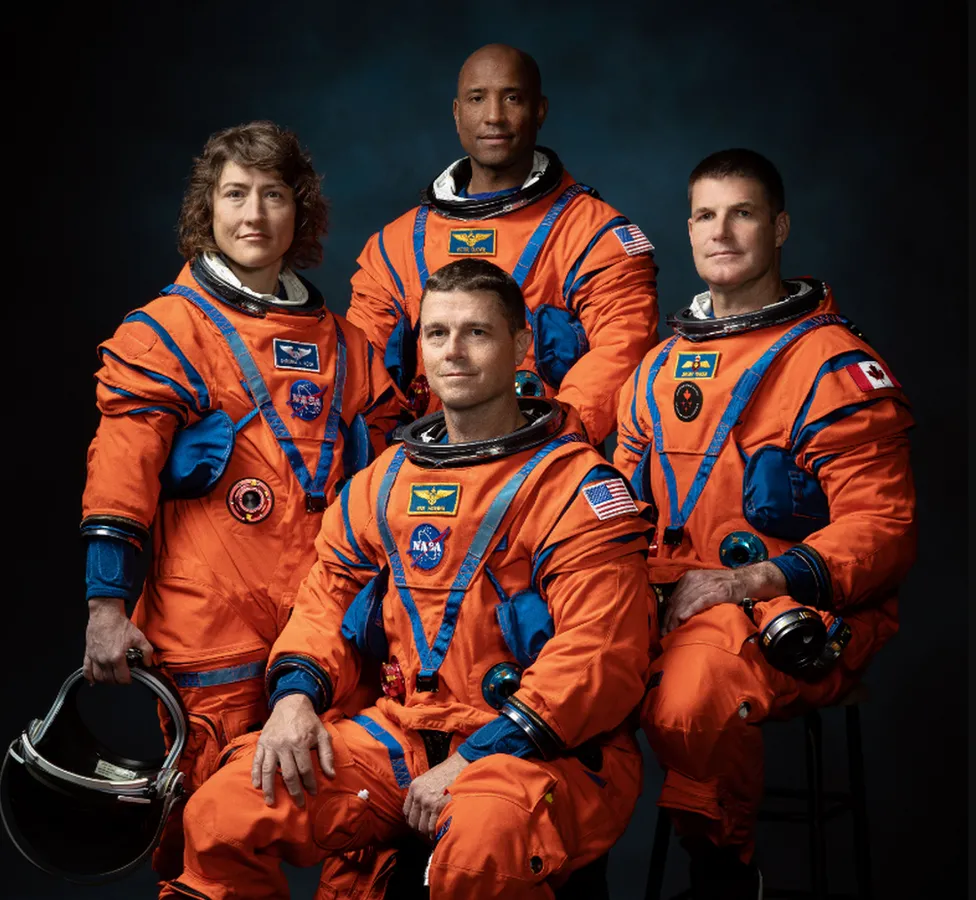NASA Names First Woman and Black Man for Moon Mission
The US space agency NASA has named four astronauts, three Americans and one Canadian, for the Artemis-2 lunar mission. Among them are the first woman and first Black man to partake in a mission to the Moon - Christina Koch and Victor Glover....

0:00
/0:00
Facts
- The US space agency NASA has named four astronauts, three Americans and one Canadian, for the Artemis-2 lunar mission. Among them are the first woman and first Black man to partake in a mission to the Moon - Christina Koch and Victor Glover.1
- 44-year-old Koch, who will be a mission specialist for the lunar flyby, is an engineer who already holds the record for longest continuous spaceflight by a woman and was part of NASA's first three all-female spacewalks.2
- Glover, 46, is a US Navy test pilot who joined NASA in 2013 and made his first spaceflight in 2020. He was previously the first African American to stay on the space station for an extended period of six months.1
- Though they won't land on or even enter the Moon's orbit, the four astronauts will be the first to fly NASA’s Orion capsule no earlier than 2024 as a prelude to a lunar landing by two others a year later.3
- The announcement comes after NASA and the Canadian Space Agency reached an agreement in 2020 to put a Canadian on the Artemis-2 mission; Royal Canadian Air Force captain Jeremy Hansen will also be making his first space flight mission.4
- Artemis-2's astronaut crew shows NASA is keeping its promise to bring greater diversity to its exploration efforts, as all previous crewed missions to the Moon consisted of White men.1
Sources: 1BBC News, 2Reuters, 3Associated Press and 4Spaceflightnow.
Narratives
- Left narrative, as provided by Science news explores. When NASA first put humans on the Moon over 50 years ago, the US was severely lacking in diversity and inclusivity. Thankfully, the country and NASA have come a long way not only in providing opportunities for women and people of color but in acknowledging the professional and scientific benefits of a more diverse team of astronauts. The diverse future of space exploration will expand our knowledge and experiences both on the Moon and back on Earth.
- Right narrative, as provided by Areo. While equal opportunity should be celebrated, whether in the academic or professional world, Diversity, Equity, and Inclusion programs can have a negative impact. If the best person for the job happens to be Black or a woman — which may certainly be the case here — that's fine; but to pursue diverse candidates for the sole purpose of fulfilling a racial or gender quota may not even lead to true diversity, let alone picking the best candidate. Skin color, or any other immutable characteristic, won't tell you if someone is the cream of the crop — only their proven skills can do that.






